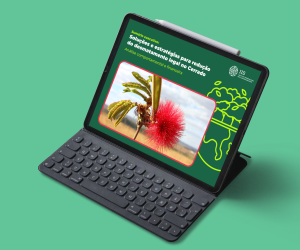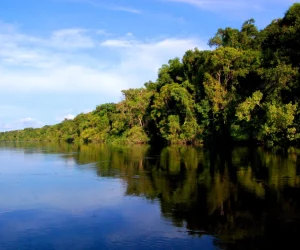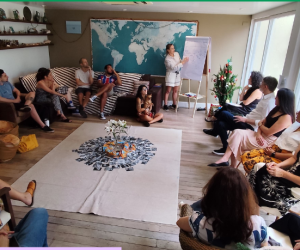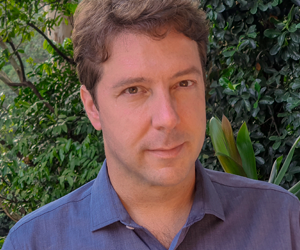News > News
26.06.14
Study about carbon emissions by selective deforestation in Amazonia has the participation of IIS researcher
The article recently published in Global Change Biology journal, which quantifies the impact of selective changes in the Amazon Rainforest and was widely disseminated in Brazil, had the participation of Toby Gardner, a researcher associated to the International Institute for Sustainability. The study conducted by scientists in Brazil and United Kingdom suggests that a number of factors such as selective logging, partial destruction by fire, and fragmentation resulting from pasture and forest may be subtracting around 54 million tonnes of carbon per year, released to the atmosphere as greenhouse gases. This loss of carbon corresponds to 40% of those caused by total deforestation.
The group obtained satellite images and made comparisons of two years, allowing researchers to build a large panel of forest degradation over time, on a scale of 20 years. A field study also evaluated the fire scars, deforestation, and other attacks. The combination of both investigations resulted in the current estimate of carbon stock.
The starting point of degradation is often the extraction of high-value hardwoods such as mahogany and ipê. These trees are selectively cut, but its removal impacts dozens of nearby trees. The openings in the vegetation makes them more exposed to sun and wind, and therefore more susceptible to drought and the spread of accidental forest fires. The effect is strongly enhanced by forest fragmentation due to pastures and cultivation of crops. The combined effects can then turn the forest into a dense bush, full of small trees and lianas, but with a carbon stock 40% smaller than the undisturbed forest, making the issue even more worrying in a context of global climate change.
Toby Gardner works at the Stockholm Environment Institute (Sweden) and the University of Cambridge (UK), and as a research associate in IIS since 2012. The main focus of his work is to evaluate the challenges for more sustainable land use systems in Brazil.
Check here the article published by Global Change Biology in the Brazilian magazine Exame and here to access the full article.








